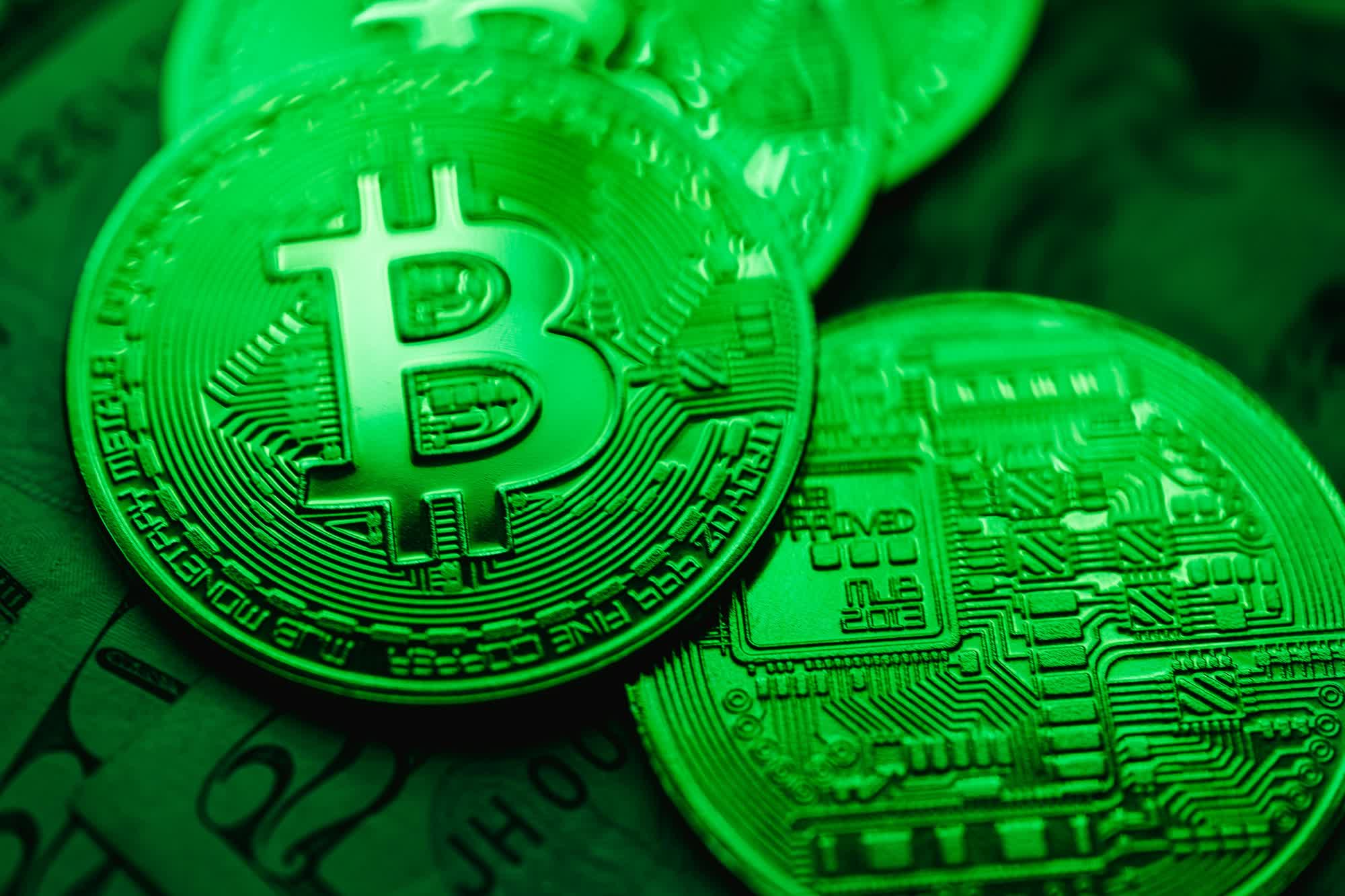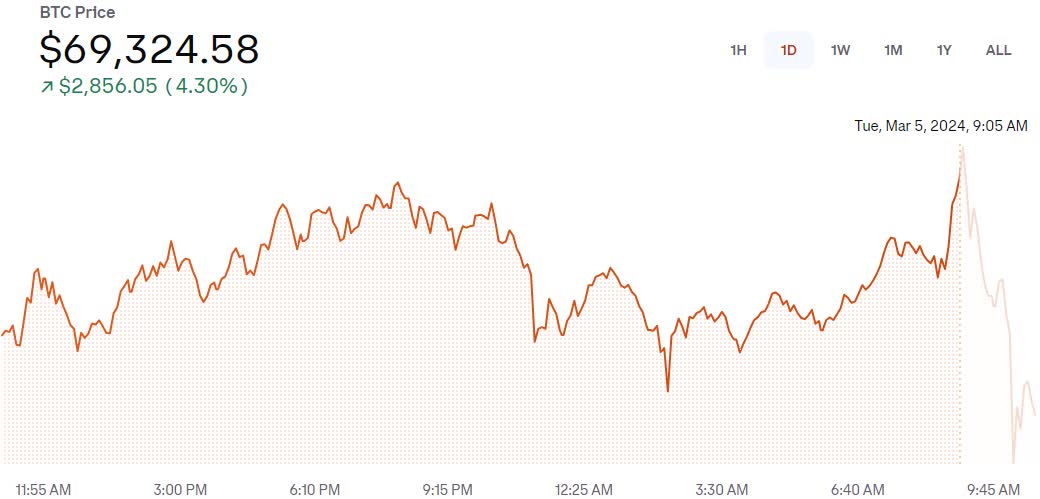What just happened? Bitcoin has hit a new all-time high following its previous record in late 2021 and subsequent dip a year later that wiped out most of its value. Pricing varies depending on the source but according to US cryptocurrency exchange Coinbase, Bitcoin's value topped out at $69,324 earlier today before sliding back down into the $67,000 range.

It marks a new all-time high for the volatile digital currency, eclipsing what some say was a previous high point of $68,790 back in November 2021 during the last cryptocurrency boom. Bitcoin's market cap currently sits at $1.3 trillion.
Pricing fell sharply following the previous peak. By November of 2022, a single Bitcoin was worth just $16,437. As with any investment, buying and selling at the right time is the name of the game. Those that managed to buy low (or mint their own coins) and either hang on to them or sell for a huge profit are no doubt smiling with today's news.

Attempting to time the cryptocurrency market or predict future valuations has proven fruitless, yet some still attempt the feat. Many thought the crypto ride was over after the last boom and dip, yet here we are. Bitcoin emerged from the crypto winter about a year ago and has exhibited strong growth ever since, largely in part to the SEC approving Bitcoin exchange-traded funds (ETFs). With a fresh high mark, some now believe Bitcoin is prepared to soar into the stratosphere.
As Rob correctly highlighted earlier this month, a strong crypto market can make gamers nervous. During the last boom, crypto miners helped drive the price of graphics cards through the roof. Of course, that situation was also aided by pandemic-era chip shortages which we've finally put behind us.
The crypto situation seems far calmer this time around, and that is great news for all involved. Organic growth is better than hype and if things can continue to trend upward without disrupting other markets, so be it.
Image credit: Karolina Grabowska
https://www.techspot.com/news/102135-bitcoin-surpasses-69k-hit-new-record-eclipsing-2021.html